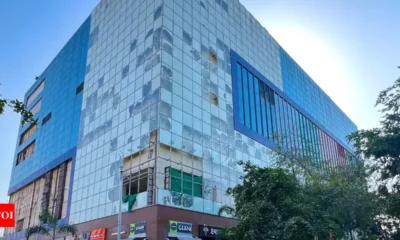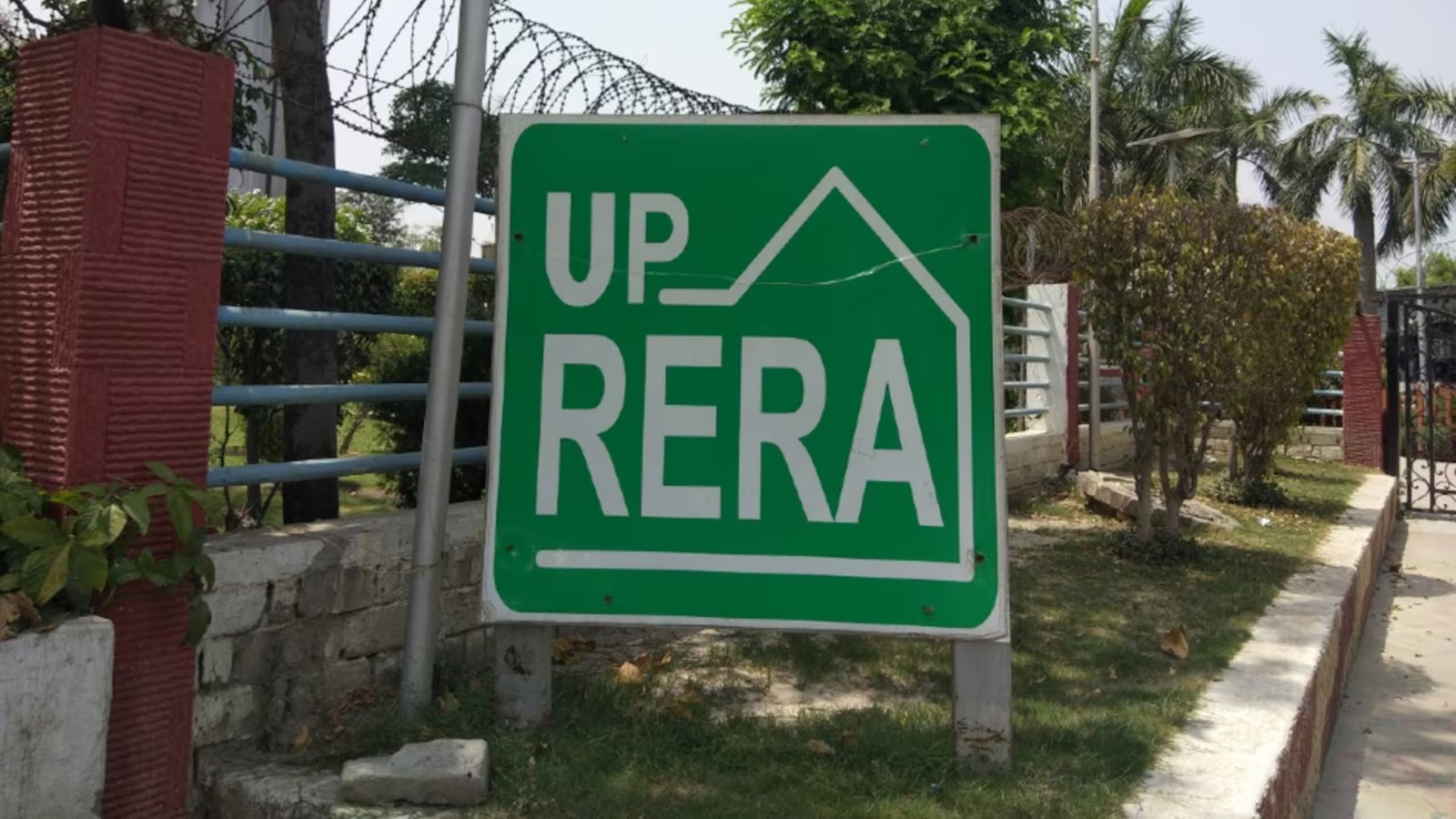News
DDA’s Land Pooling Policy takes a forward step That’s the way! 40k-acre land to open up for development in Delhi


DDA’s novel solution to housing problem in Delhi got a leg up when 89 villages on the outskirts of the national Capital were declared urban by an order by the L-G. The move was mandated to give effect to the Land Pooling Policy which the nodal agency had approved way back in 2013. The L-G’s order, which is a major step forward towards making about 40,000 acres of land available for development, has lifted the spirits of home-seekers, developers, farmland-owners and all other stakeholders in the real estate industry.
The real estate activity in Delhi is set to witness a boom with Lieutenant-Governor Anil Baijal on May 17 paving way for the implementation of Land Pooling Policy by declaring 89 villages in the city as urban areas. The move will make around 40,000 acres of land available for development and open avenues for providing affordable housing to city residents.
The move comes as great news for areas on the outskirts of Delhi like Narela, Najafgarh and Bawana as the majority of the land would be falling under these. The large-scale development that it would entail would make Delhi a hot property market in the entire Delhi-NCR region. Adding to the good news, developers have already acquired half of these lands and are preparing for large-scale development.
Since affordable housing is the prime motive of the Land Pooling Policy, it is expected to provide a relief from escalated prices of houses in the national Capital. The move is also being seen as a solution for people moving away from Delhi to places like Noida, Gurugramand Greater Noida to afford a home.
The Delhi Development Authority (DDA) had approved the policy in the last week of July 2013, and thereafter it was notified by the Union Ministry of Urban Development in September the same year. The operational rules were approved by the ministry in May 2015 and the policy was notified by DDA the next month. But it could not be implemented as the state Government refused to change the land-use of the villages’ agricultural land.
To change the land-use, the first step was to change the character of the village from rural to urban area, which has been notified now. As a next step, the agricultural land of the farmers of the villages will be declared as ‘development area’. After this, they can give the land to DDA for land pooling. The nodal agency would only work as a caretaker/facilitator to this policy that would give the public-private sector a chance to boom its relationship and hence enhance the development.
The40,000 acres of land that the policy is going to unlock for development on the outskirts of Delhi is approximately the size of the industrial and residential area in Noida combined.
The DDA has created two categories for land pooling – above 20 hectares and second for land between 2 and 20 hectares. Under the proposed policy, if a farmer or a group of farmers gives more than 20 hectares (50 acres) of land to DDA, the Authority will return 60 per cent of the land after developing it. For less than 20 hectares, DDA will return 40 per cent of the land. On the rest of the land, DDA will provide common facilities like road, sewer, water supply and other basic amenities.
The DDA will meet the cost of development by selling the developed land left with it to developers or end-users. The land given back to the original owners by DDA can be used for housing or any commercial development. The enhanced ground coverage of 40 per cent under this policy, as against the existing 33 per cent, is to promote private sector participation.
While giving its nod in 2015, the UD Ministry had made some amendments to the Land Pooling policy according to which:
–In case DDA delays the development of the pooled land, it will pay penalty to the landowners/farmers of 2 per cent of the External Development Charges (EDC) for the first two years and 3 per cent for the period thereafter in case of delay beyond the completion of the project or five years, whichever is later.
–If farmers/landowners are unable to pay the EDC, they can give up a larger portion of the land to the DDA, and in such case they will get 35 per cent of the land back.
–It will be mandatory for the development companies to construct houses for the economically weaker sections(EWS), which will amount to 15 per cent of the FAR over and above the permissible FAR of 400.
–Transparent system for prioritising the allocation of returnable land based on a computerised monthly-grouping system.
–Complete utilisation of the FAR meant for residential purposes.
Though it has taken years to reach the present stage, the Land Pooling Policy envisaged by DDA has been hailed across the spectrum as a perfect solution to housing problems in Delhi. Those aspiring for a shelter of their own in the national Capital, developers, critics and experts have all given thumbs up to it.
But since the May 17-order notifying 89 villages as urban areas was issued from the L-G’s office, it was being said that Baijal had bypassed the Arvind Kejriwal Government. A Delhi Government spokesperson, however, debunked this suggestion and said there was file movement for the purpose. The minister’s approval, he said, was not required as the department handling land issues is not part of the state Government. On his part, Chief Minister Kejriwal highlighted the policy in his video conference ‘Talk to AK’ saying that the policy is very good and the Government was looking forward to implement it.
This, however, did not deter Vijender Gupta, Leader of Opposition in the Delhi Assembly, to allege that the notification was due to the L-G taking direct cognisance of the issue. Going further, he said this augured well for the development of Delhi as it shows that the L-G has decided to take determined action on developmental issues.
Leaving this usual politicking aside, it can be said without doubt that the Land Pooling Policy is an innovative idea to solve Delhi’s land problem. It also corresponds to the massive housing development which the city has seen in the last few decades due to which the population has risen from 60 lakh to 1.7 crore resulting in a shortage of land for 20 lakh people which would grow up to be 80 lakh by 2021.
Real estate experts too acknowledge the long-term scope of this policy saying the enormous housing development will open up an opportunity for the people. They also opine that the realty sector will get a boost with the implementation of the policy. Land pooling, they say, will enthuse buyers which will lead to an inflow of liquidity in the cash-strapped realty market.
Though a novel idea to get over land scarcity in Delhi, states like Gujarat and economic hubs of Maharashtra are already using the Land Pooling Policy. As judicious use of land has always been considered as one of the prime aspects to make a country advanced, Land Pooling Policy (though with different names) has been the core model for all the developed countries. Having recognised the value of land quite early, the core of this policy has been used in the development of such countries. Major cities like London, New York and Tokyo are using such models today for their expansion.
With India nursing ambitions of a developed country in the near future and Delhi aspiring for the world-class city status, Land Pooling Policy is the best thing that has happened, although delayed by a few years!
-



 News3 weeks ago
News3 weeks agoKW Delhi 6 Mall Onboards New Brands
-



 News4 weeks ago
News4 weeks agoManasum Senior Living Launches IKIGAI GOA, A Senior Living Community in North Goa, in collaboration with Prescon Homes
-



 News2 weeks ago
News2 weeks agoGodrej Properties Sells Rs 3k cr+ Homes of Godrej Zenith, Gurugram, within 3 days
-



 News4 weeks ago
News4 weeks agoBridging India Divide: Top 5 Tier- 2 Cities to Focus On
-



 News3 weeks ago
News3 weeks agoCommercial Realty Gets Tech Savvy: Fast Construction, Enhanced Convenience
-



 News4 weeks ago
News4 weeks agoMultipoint Connection – A Definite Boon
-



 News3 weeks ago
News3 weeks agoRBI’s Status Quo on Key Policy Rates to Help Maintain the Real Estate Growth Momentum, Say Industry Stalwarts
-



 News1 week ago
News1 week agoOlive Announces Dhruv Kalro as Co-Founder
















